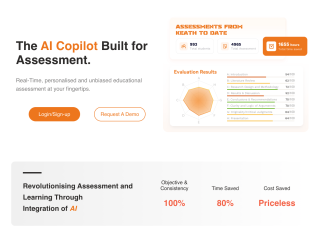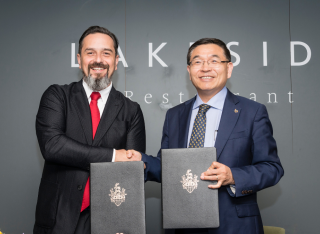
Professor Yu Xiong CEng FAcSS
Academic and research departments
Surrey Business School, Surrey Academy for Blockchain and Metaverse Applications.About
Biography
Prof. Yu Xiong CEng FAcSS is a Chair Professor of Business Analytics and a Fellow of the prestigious Academy of Social Sciences in the United Kingdom. He is the founding director of the Surrey Centre for Innovation and Commercialization, where he has secured approximately £2 million to support a wide range of initiatives across the university ecosystem. He also founded the Surrey Academy for Blockchain and Metaverse Applications, through which he has obtained an additional £2 million in funding to advance the university’s education, training, and research in blockchain business applications. Professor Xiong has previously held several senior administrative roles, including University Associate Vice-President for External Engagement, University Associate Dean (International), Director of Enterprise Engagement, and Director of Knowledge Exchange, among others.
Before joining Surrey, he held positions at the University of York as an EPSRC Research Fellow, Queen's University Belfast as a Lecturer and Director of the China Management Research Institute, the University of East Anglia as an Associate Professor and Associate Director of External Engagement for Norwich Business School, and at Northumbria University as a Professor and Director of Enterprise Engagement, Faculty Lead for Knowledge Exchange, and Head of the Supply Chain Management Group. He was the Chair of the Advisory Board of the UK's All-Party Parliamentary Group on Metaverse and Web 3.0, and a Board member of the All-Party Parliamentary Group on Blockchain.
Professor Xiong's research focuses on sustainable and technological issues within global supply chains, and he has published in world leading journals such as the Journal of Operations Management, European Journal of Operational Research, Nature Communications, International Journal of Operations and Production Management(IJOPM), International Journal of Production Research, Journal of Business Research, International Journal of Production Economics, the Journal of the Operational Research Society etc., among others. He has served as a guest editor for the International Journal of Operations and Production Management, Technovation, IEEE Transaction Part E etc.. According to Elsevier, from 2014-2023, he ranks third in the UK for his research outputs in Closed-Loop Supply Chain and Remanufacturing, and he is the number 1 cited researcher in the UK in the same category. One of his publications in Nature Communications has achieved an Altmetrics score of almost 1,960, placing it among the one of the forty most significant scientific achievements in 2021 and including it in the Timeline of Computing for that year.
Professor Xiong's research has received funding from prominent organizations, including the EPSRC (Engineering and Physical Sciences Research Council), Research England, the Department for Business, Energy, and Industrial Strategy, the British Academy, the British Council, the Offshore Renewable Energy Catapult, the Satellite Applications Catapult, and many more private and public organizations. He was a Fellow of the University of Cambridge Institute for Sustainability Leadership(CISL, 2016-2023) , Senior Fellow of the University of Oxford Technology and Management Centre for Development(TCMD, 2023-Present), Visiting Professor in Computer Science at the University of York, as well as a visiting professor at Durham University Business School.
In terms of innovation commercialization, Professor Xiong has extensive experience working as a director and chair of companies. While in Newcastle, he facilitated an £8 million investment to establish TusPark Newcastle, which has created a significant impact on ecosystem innovation in the North of England. He is a Strategic Advisor to the Satellite Application Catapult, appointed by the CEO, and recently became the managing director/co-founder of OxValue.ai(Winner of Falling Wall Scientific Breaking Through Awards, 2022, and Oxford University Vice Chancellor Award(Highly Commended) 2025), a joint venture between Professor Xiong and the University of Oxford, focusing on early-stage technology valuation. Professor Xiong has contributed to the growth of more than 40 companies in the UK, he is also the core team member of Fotor, one of the leading Generative AI platforms in the world, that has 650 million users. In 2023, he co-founded Keath.ai, and became Chair of the board, this company won runner up award the the Times Higher Education Digital University Awards, as well as becoming the second prize of the influential Pie News Awards innovation of the year 2024. Recently, Professor Yu Xiong has been appointed as Senior Vice President and Chief Scientest of Datasection Inc., a publicly listed company based in Tokyo(T.3905). Datasection specializes in AI infrastructure and has a market capitalization of $340 million(as of 25th Nov 2025). The company is a influential player in the AI industry, recently signing a significant agreement with Solaria to build a data center in Spain. This collaboration highlights Datasection's commitment to expanding its global presence and advancing AI-driven technologies in data infrastructure.
In the sustainability domain, Professor Xiong has dedicated much of his time to developing real-world projects. He was a company director for the ADAPT Group, running a £50 million Low Carbon Innovation Fund. He has also worked on various projects with UNESCO related to the Sustainable Development Goals, was a board director of 99P Recycling Limited, and served as a trustee for the charity Magna Carta World Peace and Sustainability Foundation. In 2018, he was appointed as Director and Chair of the London Fashion Fund, which is fully funded by the Mayor's Office of London to support sustainable fashion startups. His research was highlighted by the BBC as one of the 26 UK projects celebrating COP26 in 2021. His another research, collaborating with Therme Group, was asked to announce at COP 28.
In the blockchain sphere, Professor Xiong was the Chair of the advisory board of the UK's All-Party Parliamentary Group on Metaverse and Web 3.0, and co-founder to Endless Protocol(endless.link). According to Altmetrics, his research about blockchain, which was published in National Communication , is currently ranked as the world's number one for impact(AltMetric 1983) among academic publications featuring the keyword "blockchain." He has been Principal Investigator to the influential research about tourism tokenomic model, funded by the largest tourism resort company in the world, Therme Group.
Prof. Xiong's accomplishments extend beyond his professional achievements; in 2012, he was honored to be a London Olympic Torchbearer. In 2015, he received the distinguished May 4th Medal, also also received the 2021 Global Ghandi Award in House of Lords of the UK Parliament.
University roles and responsibilities
- Associate Vice President (External Engagement)
- Associate Dean International(University wide role, 2020-2022)
- Member of University External Engagement Leadership Group(EELG)
- Director, Centre for Innovation and Commercialization(within the University Researh and Innovation Division)
- Member of the University International League Table Advisory Group (ILTAG)
- Director, Surrey Academy for Blockchain and Metaverse Applications
- Director, Surrey Centre for Innovation and Commercialization
News
In the media
Supervision
Postgraduate research supervision
I would be happy to supervise PhD research in the follow topics:
Supply Chain Management
Technology Management
Blockchain Business Model
Postgraduate research supervision
Supervision completed:
Dr. Ryan Atkins, PhD completed in 2012(as 2nd supervisor), Professor in Management at Nova Southwest University, US
Dr. Yu Zhou, PhD completed in 2013(CSC funded), Associate Professor at Chongqing University, China(a top 985 university).
Dr. Zubair Khan, PhD completed in 2013(Second Supervisor), Asscociate Professor at University of Science and Technology Bannu, Pakistan
Dr. Gendao Li, PostDoc Research Associate completed in 2013, Associate Professor at Northumbria University, UK
Dr. Xi Liang, PostDoc Research Associate completed in 2013, Professor at Chongqing Jiaotong University, China
Dr. Yunzhang Hou, Research Associate completed in 2013, Assistant Professor in Fudan University, China
Prof. Xi Wan, Research Associate Completed in 2012, Professor and Dean of Management School, Chongqing University of Technology.
Dr. Wei Yan: PhD completed in 2014, Associate Professor at Southwest University of Telecommunication China(a top 985 University)
Ms. Xiaojuan Li: Research Associate(TSB KTP programme, 2014-2016). Currently Deputy General Manager at Skyline CG.
Dr. Senmao Xia: PhD completed in 2016, Associate Professor at Coventry University Business School
Dr. Hui Lu: 3D Technology Supply Chain: The business models (Completed 2019), Post Doc Fellow at Fudan University.
Dr. Jiamin Liang: PhD Completed in 2020, Director for Payment Programme, SpinnrTech.
Supervision ongoing:
Mr. Qingyu Zhang
Mr. Joey Lin Fu
Ms. Lulu Xia(Joint PhD with CSC)
Ms. Shiyuan Zhang(Joint PhD with CSC)
Ms. Ruoxi Yang
Publications
Highlights
Jiang, S.,Li, Y., Lu, Q., Hong, Y., Guan, D., Xiong, Y., Wang, S., 2021, Policy Assessments for the Carbon Emission Flows and Sustainability of Bitcoin Blockchain Operation in China, Nature Communication 12, 1938 (2021), (Impact Factor: 12.121, https://doi.org/10.1038/s41467-021-22256-3 ).
L Yimeng, Y Xiong, F Mariuzzo, XIA Senmao, 2021, The underexplored impacts of online consumer reviews: Pricing and new product design strategies in the O2O supply chain, International Journal of Production Economics, https://doi.org/10.1016/j.ijpe.2021.108148
Chaudhuri, A., Fernandes, K., Priya, P., Xiong, Y., 2021, Optimal pricing strategies for Manufacturing-as-a Service platforms to ensure business sustainability, International Journal of Production Economics (ABS 3* https://doi.org/10.1016/j.ijpe.2021.108065)
Xiong, Y., Xia, S., Wang X., 2021, Artificial intelligence and business applications, an introduction, International Journal of Technology Management, https://doi.org/10.1504/IJTM.2020.112615
Jin, M., Zhang, X., Xiong, Y., Zhou, Y., 2021, Implications of Green Optimism upon Sustainable Supply Chain Management, European Journal of Operational Research(ABS 4*, Forth Coming)
Highlights of 2020 publications:
Zhang, F., Chen, H., Xiong, Y., Wei, Y., Liu, M., 2020 Managing collecting or remarketing channels: Different choice for cannibalisation in remanufacturing outsourcing, International Journal of Production Research( ABS 3*, doi: 10.1080/00207543.2020.1797205)
Xiong, Y., Xia, S., 2020, Mechanisms behind China's innovation achievements: A Multi-level View, Technovation(ABS 3*, doi: 10.1016/j.technovation.2020.102123)
Nie, J., Shi, C., Xiong, Y., Xia, S., Liang, J., 2020, Downside of a carbon tax for environment: Impact of information sharing, Advances in Climate Change Research, doi: 10.1016/j.accre.2020.06.006
Huang, H., Xiong, Y., Zhou, Y.,2020, A larger pie or a larger slice? Contract negotiation in a closed-loop supply chain with remanufacturing, Computers & Industrial Engineering (DOI: j.cie.2020.106377)
Jin, M., Xiong, Y., Zhou, Y., 2020, Less is More: Consumer Education in a Closed-Loop Supply Chain with Remanufacturing, OMEGA: International Journal of Management Science (ABS 3*, doi: 10.1016/j.omega.2020.102259)
Yang, Y., Jia, F., Chen, L., Wang, Y., Xiong, Y., 2020, Adoption timing of OHSAS 18001 and firm performance: An institutional theory perspective, International Journal of Production Economics(ABS 3*).
Xia, S., Xiong, Y., Zhang, M., Cornford, J., Liu, Y., Lim, K., 2020, Reducing the Resource Acquisition Costs for Returnee Entrepreneurs: Role of Chinese National Science Parks, International Journal of Entrepreneurial Behavior & Research, DOI: 10.1108/IJEBR-04-2019-0202
Jin, M., Xiong, Y., Zhou, Y., 2020, The entry of third-party remanufacturers and its impact on original equipment manufacturers in a two-period game-theoretic model, Journal of Cleaner Production(ABS 2*)
Jia F., Caniato, F,. Chen, L., Moretto,A., Milano, P., Xiong, Y., 2020, The role of digital transformation to empower Supply Chain Finance: Current Research Status and Future Research Directions, International Journal of Operations & Production Management(ABS 4* Guest Editor)
Yan, J., Xiong, Y., 2020, Unpacking the impact of innovation ambidexterity on export performance: Microfoundations and infrastructure investment, International Business Review(ABS 3* https://doi.org/10.1016/j.ibusrev.2020.101766)
Zhang, P., Xiong, Y., Zhou, Y., 2020, The Dark Sides of Environmental Requirement in A Supply Chain with Information Asymmetry, Computers & Industrial Engineering, DOI: 10.1016/j.cie.2020.107087
Different stakeholders are educating consumers about the benefits of remanufacturing. By increasing the number of consumers who are willing to purchase remanufactured products, consumer education has been expected to facilitate the advancement of the remanufacturing sector. We formally validate the condition under which consumer education is indeed beneficial from a social planner's perspective. We develop a game-theoretical model to examine the implications of consumer education upon a closed-loop supply chain consisting of one manufacturer and one supplier. The manufacturer can perform remanufacturing at the component level. The direct effect of consumer education is that more consumers are willing to pay for the remanufactured product. Although the optimal remanufactured product quantity, in general, increases in the presence of consumer education, surprisingly, our analysis identifies a consumer education paradox, that is, as more consumers are willing to pay for the remanufactured product, the manufacturer switches the choice from remanufacturing to no remanufacturing. Moreover, consumer education could be detrimental to the supply chain, consumers, and the environment because of the paradox. Fortunately, temperate consumer education might be all-around desirable if and only if ex-ante few consumers are willing to purchase remanufactured products; that is, from the social planner's perspective, temperate consumer education should be conducted to foster the remanufacturing sector in its infancy.
•Green optimism is optimistic bias about consumer environmental awareness.•We investigate the impacts of green optimism on sustainable supply chain management.•We find green optimism might discourage investment in green product development.•The retailer can benefit from green optimism, but the manufacturer cannot.•Green optimism might be detrimental to firms, consumers, and the environment. In recent years, managers have increasingly integrated sustainability into their business models. However, they might overestimate the premium that average consumers are willing to pay for the environment. In this paper, we formulate a game-theoretical model that illustrates the impacts of green optimism which refers to managers’ optimistic bias about consumer environmental awareness. We consider a sustainable supply chain in which one manufacturer invests in green product development and sells the green product through one retailer. Each firm within the supply chain is operated by one manager who is either realistic or optimistic. Contrary to conventional wisdom, we find that managers’ optimistic bias might discourage investment in green product development. We also find that green optimism is always detrimental to the upstream manufacturer, but might be beneficial to the downstream retailer. Surprisingly, under certain conditions, green optimism can be detrimental to all stakeholders, i.e., firms in the supply chain, consumers, and the environment. This study suggests an interesting link between supply chain management and human resource management; that is, within a sustainable supply chain those managers who are optimistic about the future of green business might be an obstacle to the success of green business.
The growing energy consumption and associated carbon emission of Bitcoin mining could potentially undermine global sustainable efforts. By investigating carbon emission flows of Bitcoin blockchain operation in China with a simulation-based Bitcoin blockchain carbon emission model, we find that without any policy interventions, the annual energy consumption of the Bitcoin blockchain in China is expected to peak in 2024 at 296.59 Twh and generate 130.50 million metric tons of carbon emission correspondingly. Internationally, this emission output would exceed the total annualized greenhouse gas emission output of the Czech Republic and Qatar. Domestically, it ranks in the top 10 among 182 cities and 42 industrial sectors in China. In this work, we show that moving away from the current punitive carbon tax policy to a site regulation policy which induces changes in the energy consumption structure of the mining activities is more effective in limiting carbon emission of Bitcoin blockchain operation. The growing energy consumption and carbon emissions of Bitcoin mining could potentially undermine global sustainability efforts. Here, the authors show the annual energy consumption of the Bitcoin blockchain in China is expected to peak in 2024 at 296.59 Twh and generate 130.50 million metric tons of carbon emissions.
The knowledge-based view (KBV) theory argues that organisations gain a competitive advantage by adopting strategies to capitalise on their knowledge resources, e.g., organisational culture, managerial decision-making and innovative new processes. Large organisations partner with external technology suppliers to develop such technology-driven processes. However, within the context of large organisations, there remains a lack of insight into the motivation and structures of how and why large organisations collaborate with external partners to create such technology-driven processes. To explore the identified problem of understanding the collaborating mechanisms that contribute to technology-driven process innovation in large manufacturing organisations, we analyse and develop inductive concepts using multiple data points. Our research illustrates that external technology partners act as a mediating influence in process-innovation projects by contributing to the capabilities or capacity of an organisation.
•This is the first analytical paper which studies anti-counterfeiting in a retail platform under dual-channel competition.•This work is the first one focusing on the incentives for the platform and the manufacturer to invest in anti-counterfeiting technology under dual-channel competition.•We uncover that the payoff of anti-counterfeiting in the retail platform is not always positive and anti-counterfeiting may harm consumer surplus and social welfare. The retail platform has developed rapidly, but the problem of fake products has also become increasingly severe. This paper investigates the impact of anti-counterfeiting in a retail platform and the incentives for the platform and the manufacturer to invest in anti-counterfeiting technology by using a game-theoretic model. We consider that the product can be sold directly by the manufacturer, or indirectly through a reseller on the platform. The reseller might also sell fake products, but the platform and the manufacturer can use anti-counterfeiting technology to fight against the fakes. Our analysis shows that the payoff of anti-counterfeiting in the retail platform is not always positive. Specifically, when the production valuation is low, the anti-counterfeiting payoff for the platform (the manufacturer) is negative if the proportion of fakes is sufficiently low (high). We also find that anti-counterfeiting may harm consumer surplus and social welfare. In addition, if the investment cost of anti-counterfeiting is high, at most one firm, either the platform or the manufacturer, has the incentive to invest in anti-counterfeiting contingent on the relative valuation on the platform’s services. Finally, with the investment in anti-counterfeiting, the platform should provide better services than before for surviving in the market.
•Coproducts made of leftover materials are strongly attractive to green consumers.•Coproduction technology can be adopted by one OEM or one CM.•The raw material cost has non-monotone impacts on the optimal coproduction strategy.•The fraction of the green customer segment has non-monotone impacts on the CM’s profit.•The adoption of coproduction technology may make the environment worse off. In recent years, coproduction technology has been developed and adopted by many third-party coproduct manufacturers (CMs). Coproducts made of leftover materials from traditional manufacturing are strongly attractive to green consumers who are willing to pay a price premium for environmental protection. However, original equipment manufacturers (OEMs) might hesitate to adopt coproduction technology because the coproduct cannibalizes the sales of their traditional products. In this paper, we develop a game-theoretical model to investigate the economic and environmental implications of coproduction that can be leveraged by one OEM or one CM. We find that, from the OEM’s perspective, the dominant strategy can be OEM coproduction, CM coproduction, or No coproduction, which is contingent on the demand from green consumers and the supply of raw materials. We also find that the size of green consumers and the unit cost of raw materials have non-monotone impacts on the CM’s profit. Interestingly, an enlarging size of green consumers might hurt the CM, while an increasing cost of raw materials might benefit the CM. Although coproduction recovers the value of leftover materials, the adoption of coproduction technology increases the total material consumption and the total material waste when the unit cost of raw materials is sufficiently high, making the environment worse off.
Item representation holds significant importance in recommendation systems, which encompasses domains such as news, retail, and videos. Retrieval and ranking models utilise item representation to capture the user-item relationship based on user behaviours. While existing representation learning methods primarily focus on optimising item-based mechanisms, such as attention and sequential modelling. However, these methods lack a modelling mechanism to directly reflect user interests within the learned item representations. Consequently, these methods may be less effective in capturing user interests indirectly. To address this challenge, we propose a novel Interest-aware Capsule network (IaCN) recommendation model, a model-agnostic framework that directly learns interest-oriented item representations. IaCN serves as an auxiliary task, enabling the joint learning of both item-based and interest-based representations. This framework adopts existing recommendation models without requiring substantial redesign. We evaluate the proposed approach on benchmark datasets, exploring various scenarios involving different deep neural networks, behaviour sequence lengths, and joint learning ratios of interest-oriented item representations. Experimental results demonstrate significant performance enhancements across diverse recommendation models, validating the effectiveness of our approach.
Item representation holds significant importance in recommendation systems, which encompasses domains such as news, retail, and videos. Retrieval and ranking models utilise item representation to capture the user-item relationship based on user behaviours. While existing representation learning methods primarily focus on optimising item-based mechanisms, such as attention and sequential modelling. However, these methods lack a modelling mechanism to directly reflect user interests within the learned item representations. Consequently, these methods may be less effective in capturing user interests indirectly. To address this challenge, we propose a novel Interest-aware Capsule network (IaCN) recommendation model, a model-agnostic framework that directly learns interest-oriented item representations. IaCN serves as an auxiliary task, enabling the joint learning of both item-based and interest-based representations. This framework adopts existing recommendation models without requiring substantial redesign. We evaluate the proposed approach on benchmark datasets, exploring various scenarios involving different deep neural networks, behaviour sequence lengths, and joint learning ratios of interest-oriented item representations. Experimental results demonstrate significant performance enhancements across diverse recommendation models, validating the effectiveness of our approach.
The visitor economy is responsible for a substantial percentage of the global carbon footprint. The mechanisms used to decarbonize it are insufficient, and the industry is relying on carbon trading with substandard credits that allow businesses to outsource the responsibility to decarbonize. We aim to transform carbon markets, help finance climate investments, and support decarbonization strategies. We identify and define the problem, outline the components and their interactions, and develop a conceptual model to transform carbon markets. The new, blockchain-based Carbon Tokenomics Model rolls out a decentralized database to store, trade, and manage carbon credits, with the goal of enabling sustainable climate finance investment. We outline the criteria needed for an industry-wide carbon calculator. We explain the process needed to increase rigor in climate investments in the visitor economy and introduce a delegated Proof of Commitment consensus mechanism. Our inclusive and transparent model illustrates how to reduce transaction costs and how to build consumer and industry trust, generating much-needed investments for decarbonization.
Considering the extreme significance of artificial intelligence (AI) for the academic research, business practices as well as governmental policies, this article reviews the development and application of AI via a management and development perspective. In particular, this article starts with the discussions how AI might bring about new competition and collaboration relationships among countries and firms. We then analyse key elements for AI firms to secure public funding. In addition, this study summarises the characteristics of AIs new applications in multiple business scenarios, such as entrepreneurial social networks and strategic human resource management. Finally, the relationship between blockchain and AI is briefly introduced.
In recent years, online consumer reviews have become popular in platform sellers to increase product sales, and the literature has widely recognized those reviews' positive impacts. Nevertheless, this paper identifies online consumer reviews' negative impacts on the intra-brand competition (multi-product), and aims to study such effect on wholesale prices and product design strategies of players in the FMCG (Fast Moving Consumer Goods) O2O (online to offline) supply chain. We model the decentralized O2O supply chain facing intra-brand competition that consists of a platform seller (follower) and a manufacturer (leader) when the new product entries. We find that the intra-brand competition driven by the reviews' increased-sales effect on the incumbent product causes the conflict. The platform seller prefers to limit such an effect if the new product's consumer valuation is not sufficiently high, but the manufacturer benefits from it. Manufacturers can reduce the product line's wholesale prices or lower down the new product quality to pre-empt the platform seller from limiting RE-I to coordinate the channel. This study contributes to O2O supply chain management literature by examining the possible negative impacts of online consumer reviews. Also, this study presents a new perspective to combine consumer reviews, pricing and product design strategies to coordinate the O2O channel.
Purpose The purpose of this paper is to empirically explore the mechanisms through which Chinese National Science Parks' (NSPs) services facilitate returnee entrepreneurs' (REs) acquisition of resources for their new ventures. Resource acquisition is crucial for new ventures, but it inevitably leads to significant costs increase. Although the NSPs offer various services to REs to reduce these costs, they still struggle to find the right mix of services. Design/methodology/approach From the transaction cost's perspective, an exploratory multiple-case study was conducted with data collected from six NSPs in China. Findings The results reveal that four types of NSP services (mentoring and training, social event, promotion of REs and accreditation of resource holders (RHs)) have both individual and joint effects on reducing REs' resource acquisition costs. Specifically, the "accreditation of RHs" service directly helps REs reduce search costs. The combination of "accreditation of RHs", "promotion of REs" and "social event" services help REs and RHs to establish guanxi. Further, guanxi, working along with the "mentoring and training" service, helps REs to reduce contracting, monitoring and enforcement costs. Originality/value This study is among the first to explore the matching mechanisms between science parks' services and entrepreneurs' cost reduction. This helps reconcile the inconsistent findings on science parks' effect by explaining why some NSPs are able to provide strong support to REs while others are less successful. In addition, the findings are useful for NSPs to develop the right mix of tailored services for REs. Finally, REs will find this study useful to evaluate which NSP is a more suitable location for their new ventures.
Foreign direct investment in R&D is one of the popular channels indigenous firms use to upgrade their technological capacities and improve market intelligence following innovation setbacks. Firms often employ various signals to secure higher levels of foreign direct investment in R&D. However, the majority of research on this topic focuses on the role of positive rather than negative signals. Firms are often conservative about communicating negative information regarding their innovation projects due to concerns around competition and managerial performance appraisal. Drawing on signaling theory, this study investigates the impact of a negatively valenced signal - the experience of abandoning innovation projects - on attracting foreign direct investment in R&D. Moreover, although firms are known to send multiple signals simultaneously, little is known about how the interactions between oppositely valenced signals (specifically, the experience of abandoning innovation projects, which is a negative signal, and the filing of patent applications, which is a positive signal) affect foreign direct investment in R&D. A study of 11,354 Spanish firms from the Spanish Technological Innovation Panel during the period 2008-2015 found that the experience of abandoning innovation projects has a positive effect on foreign direct investment in R&D. However, this positive effect is weakened by patent applications due to the signaling of conflicting messages. These results have important theoretical and practical implications for the advancement of signaling theory and the management of innovation setbacks.
Motivated by the observation that firms invest in carbon emissions reduction to decrease the cost of carbon tax as governments in numerous countries increasingly implement carbon tax to improve the environment, and broad researcher and practitioner agreement that carbon tax implementation always benefits the environment. However, we find that a carbon tax may actually hurt the environment based on a stylized game model with a better-informed retailer (one who controls the demand information sharing with the manufacturer) and a manufacturer. In particular, we find that the carbon emissions reduction may harm the environment if the carbon tax is moderate or both the carbon tax and the demand fluctuation are high. We further reveal free-riding behavior by the retailer, who may enjoy more profit sharing from the supply chain in the presence of carbon emissions reduction. Based on these observations, we argue that a carbon tax does not always benefit the environment when a manufacturer who receives demand information from the retailer responds better to market uncertainty.
3-Dimensional Printing (3DP) has been widely used in the circular supply chain. Still, most of the literature focused on addressing only the manufacturer's adoption of 3DP and how it influences the supply chain. A growing number of non-manufacturer (e.g., logistic suppliers) have adopted 3DP, but its impact on manufac-turers and customers is still underexplored. This paper uses a two-player single-period supply chain model, supported by an in-depth interview, to investigate how the logistics supplier's 3DP adoption impacts the circular supply chain in the spare parts aftersales market. The findings show that cost reduction of 3DP does not always benefit the logistics supplier. Still, this finding opens a new revenue stream for the logistics supplier and the integrated supply chain. Further, the manufacturer can financially benefit from such adoption only when the cost of 3DP production is relatively high. Interestingly, the logistics supplier can use 3DP adoption as a game-changer to become a new "green manufacturer", thereby posing a strategic threat that can influence the traditional manufacturer's decisions regarding financial benefits. Customers can also enjoy more surplus when logistics suppliers adopt low-cost 3DP. This study is one of the first to investigate how non-manufacturer 3DP adoption impacts the circular supply chain.
Thermal power generation based on coal-fired power plants has the advantages of stability and controllability and has been the largest source of electricity supply in China. Coal-fired power plants, however, are also accompanied by high carbon emissions and the release of harmful substances (mainly including sulfur dioxide, nitrogen oxides, and smoke dust), and are even regarded as the "chief criminal" in terms of air pollution. However, thermal power is also a pioneering industry involved in several environmental regulations and cleaner production techniques before other industries. Evidence of this is China's ultra-low emissions (ULE) policy on coal-fired power plants, implemented in 2015. To verify this policy's effect, this study treats ULE as an exogenous impact variable, examining its emissions reduction effect on SO2, NOx, and smoke dust in Eastern and Central China using the difference-in-difference method (DID). The results show that the total emissions of the three pollutants were abated by 0.133%, 0.057% and 0.036% in Eastern, and by 0.120%, 0.035% and 0.043% in Central China at every 1% rise of thermal power generated after ULE. In addition, several other factors can also argue for the promotion of thermal power. Other industries, such as steel or chemical, have proven that they can contribute significant SO2 and NOx emissions. Based on these results, we provide suggestions on synergistic emissions reduction among multiple industries, as well as a discussion on the necessity of implementing ULE in Western China.
Previous studies have shed light on the effects of the adoption of OHSAS (Occupational Health and Safety Assessment Series) 18,001 certification on performance. One important factor that has been neglected so far is the adoption timing. The question of whether early OHSAS 18001 adopters achieve better financial performance and operational performance than do late adopters (or vice versa) remains unanswered. We develop hypotheses and then analyze the secondary longitudinal data of listed Chinese manufacturing firms by employing a rigorous event study approach and performing regressions. The results indicate that early adopters enjoy significantly greater performance gains than do late adopters and this can be explained by institutional theory. We find that early adopters of OHSAS 18001 certification motivated by normative pressure realize additional financial performance from the second year to the fourth year after adoption, and the early adopter advantages of improved labor productivity can at least last in the medium term, but late adopters motivated by coercive and mimetic pressure only benefit in the preparation year. Moreover, early adoption is more favorable to firms with high labor intensity and low internationalization level. Thus, this study extends research in understanding the effects of OHSAS 18001 on firm performance and suggest new insights to the implementation of occupational health and safety practices.
While innovation is expected to play a major role in decarbonization, the development and diffusion of low-carbon technologies are too slow in most sectors and countries to stabilize the climate. In this introductory paper to a Special Issue on "Innovation and climate change", we review selected innovation studies literature, reflect on historical trends and insights, and cast light on future research on innovation and climate change. To set the stage for this Special Issue we present an analysis of key research topics, most influential papers and innovation journals, highlighting contributions across four interrelated themes: fostering climate action, shaping policy, promoting experimentation and learning, and examining effectiveness. While past studies and this special issue made significant contributions, we suggest that research on innovation have not sufficiently engaged with three important topics: i) blending behavioural change with technological innovation; ii) the socio-technical drivers of accelerated low-carbon transitions, and iii) the role of digital technologies as new venues of solutions to managerial challenges in addressing climate change. The nexus of climate change and innovation calls for different disciplines and coevolutionary views, as opposed to a traditional disciplinary focused approach. It also may require the need for broader, more inclusive and interdisciplinary research teams.
Global warming can be solved with carbon trading. When carbon emissions become a commodity, it can be a powerful motivator for companies to optimize production capacity and innovate technologically. The goal of this paper is to examine the way in which China's carbon emissions trading policy (CET) influences firm technological innovation in seven pilot regions, using a sample of firms in eight high-carbon industries. We employ difference-in-difference (DID) as well as DID-based propensity score matching (PSM-DID) models to investigate the influence of China's carbon emission policy on firms' technological innovation by using 4745 observations of 749 A-share listed firms in eight high-carbon industries in mainland China from 2007 to 2021. According to the findings, China's CET policy significantly boosts firms' technological innovation, and this beneficial effect persists even after a series of robustness tests that change the policy's implementation year and the technological innovation measure. Further analysis shows that this positive effect is heterogeneous across high-carbon industries and firms with different ownership. In addition, based on the external governance perspective, we find that CET policy performs better in firms in high-carbon industries with a sizable portion of ownership held by institutional investors. This study suggests the effectiveness of CET policy in promoting firms' technological innovation, confirms empirical evidence for Porter's hypothesis, and provides a basis for Chinese firms to achieve their emission reduction targets by improving technological innovation.
Supply chain networks affect the ability of firms to obtain resources, and to meet the requirements of sustainable development, firms further seek green innovation from supply chain networks. Based on this context, we construct a supply chain network system, explore the influence of supply chain network power and network cohesion on corporate green innovation output, and discuss the potential moderating effect of corporate environmental information disclosure. We use an empirical sample comprising 1048 A-share listed firms in China from 2012 to 2019 to construct a supply chain network for focal firms. We also develop the focal firms' environmental information disclosure index via the environmental information revealed in the firms' annual and corporate social responsibility reports. Negative binomial model regression is adopted to analyse how supply chain network structures affect green innovation output. Our results show that both the network power and cohesion of the supply chain network positively influence corporate green innovation output, but the interaction of network power and cohesion negatively affects corporate green innovation, which suggests that excessive green knowledge and information can overload focal firms and reduce the efficiency of knowledge and information search. Furthermore, the empirical results indicate that environmental information disclosure positively moderates the relationship between network power and green innovation output as well as that between network cohesion and green innovation output. By analysing the factors influencing corporate green innovation output from a network perspective, we provide new guidance for sustainable corporate development.
Mining activities induce some social problems, such as polluted environments, the destruction of aquatic live, which have long been debated by scholars and practitioners. To mitigate this problem, underpinning dynamic capability view, our study explores whether the digital transformation (DT) affects corporate social responsibility (CSR) by using 1308 Chinese mining A-shared listed firms from 2010 to 2021, and how the potential relationship is moderated by environmental uncertainty (EU) and supply chain concentration (SCC). Applying fixed effects regressions, we find that DT fosters CSR in the mining industry, but CSR performance is weakened when DT processed at higher EU and SCC respectively. Our findings enrich the literature on CSR of mining industry and highlight that DT is an important driver that shapes CSR practice. •A multidimensional measure of mining firmsdigitalizationis established by using text mining methods .•Digitalization positively impacts corporate social resposibility (CSR) in Chinese mining industry.•High environmental uncertainty weakens the CSR implications of digitalization in Chinese mining industry.•High supply chain concentration weakens the CSR implications of digitalization in Chinese mining industry.
Cannibalisation is still a concern for original equipment manufacturers (OEMs) when they outsource remanufacturing operations to the authorised remanufacturers (ARs). In dealing with the cannibalisation in remanufacturing outsourcing, many OEMs (such as Sun, Apple, Hewlett Packard, Bosch Tools, and Gateway) use core collecting or remanufactured product remarketing. Motivated by examples from industry, we develop two models in which an OEM produces new products but outsources remanufacturing operations to a AR. The two potential strategies for dealing with the cannibalisation from remanufacturing outsourcing are: (1) collecting used cores from consumers, or (2) remarketing all remanufactured products to consumers. Among other results, we find that minimising cannibalisation problems does not equate with maximising profits. In particular, if the collection cost coefficient is not pronounced, the aggressive response by the OEM can effectively minimise the cannibalisation problems, but will reduce the profitability for the OEM on the other hand. Further, as the collection cost coefficient is moderate, remarketing remanufactured products can secure Pareto improvements. As such, we suggest that, practising managers should combine the cannibalisation problems of remanufacturing with the costs of collecting used cores.
This paper aims to study the strategic effects of manufacturers' environmental innovation on supply chain information sharing. We develop a game-theoretic model including two manufacturers and one retailer who possesses superior demand information, and mainly investigate two cases that one or both of the manufacturers conduct environmental innovation (i.e., cases O or T). Our analysis shows that after the manufacturers conduct environmental innovation, the retailer may fully or partially share demand information for free. Moreover, the retailer is more willing to share information voluntarily in case T, comparing to case O. If manufacturers' competition is more intense, the retailer is more (less) likely to share information fully in case O (case T). Under certain conditions, the retailer can be incentivized to share information through designing a side payment from manufacturers. In addition, the side payment from one of the manufacturers can benefit the rival and supply chain in most cases, but there are exceptions. After providing incentives, non-information sharing is less likely to occur in case T, comparing to case O. Besides, the retailer's preferred modes of information sharing cannot benefit both manufacturers simultaneously in case O, but it can in case T. Our main conclusions are still valid when considering carbon tax which can facilitate information sharing.
Many small and medium-sized enterprises (SMEs) from emerging economies consider entry into developed markets as a way to promote home country performance. Nevertheless, the extant literature aiming at large companies are not applicable to SMEs, and it is unclear how SMEs with a weak resource basis can improve their domestic performance through overseas venturing. This study leverages a resource-based view on data from 377 Chinese SMEs with operations in developed nations. The findings reveal that emerging-market firms' overseas performance (both financial and non-financial) is positively related to their home country performance, with the technological learning and demonstration effect playing mediating roles. The relationship between host country performance and technological learning is positively moderated by firms' resource integration capability. This study is among the first to identify the mechanism through which emerging-market SMEs' operations in developed countries affects their home country performance. The findings are helpful in guiding emergingmarket SMEs' internationalization.
Efforts of creating economic recovery after the COVID-19 pandemic stipulate international logistics demands in the countries and regions affected by China's Belt and Road initiative. Considering the increasing number of small and middle-sized enterprises, there is a great challenge to make transportation plans for the hub port, dry ports, and related enterprises. We investigate a two-echelon vehicle routing problem with simultaneous pickups and deliveries. On one hand, freights are transported from a central depot to multiple satellites, then distributed from the satellites to customers. On the other hand, freights collected from the customers will be loaded at the satellites, then transported back to the depot. We model the problem as mixed integer programming and propose a machine learning-based hybrid algorithm to solve the problem. Our hybrid algorithm comprises a K-Nearest Neighbour algorithm and an Adaptive Large Neighbourhood Search heuristic. We apply our modelling and solution approach to a real case based on the online digital platform 'Inland Port Cloud Wharf' in China, which matches international demands of commodities with domestic supplies. Our computational experiments based on a practical case study show the efficiency of our KNN_ALNS algorithm in optimising networks with multimodal coordination and addressing real-world logistics complexities.
Most retailers have implemented multi-channel retailing strategies with the development of the platform economy. The existing literature ignores the effects of the complex competition between the strong-brand and weak-brand platform-based supply chains applying multi-channel retailing and consumers’ cross-brand-channel behavior on dynamic pricing (uniform vs. discrimination pricing). This study discusses the pricing dilemma in a more complex competition and fills the gap by modeling a 2*2 dynamic pricing Nash game between two multi-channel retailing supply chains. Our results show that when the competitor chooses uniform or discrimination pricing, the retailers should apply the same pricing strategy as the competitor. In addition, we find that uniform pricing vs. uniform pricing and discrimination pricing vs. discrimination pricing are Nash equilibrium results. Our analysis suggests that the scenario uniform vs. uniform pricing brings the highest profits to both supply chains and the strong-brand retailer but not to the weak-brand retailer.
PurposeTo explore the mechanism that shapes firms' supply chain learning (SCL) practices, this study examines the relationship between firms' knowledge network embeddedness and their SCL practice in a supply chain network, as well as the moderating role of supply chain network cohesion in this relationship.Design/methodology/approachUsing patent application data and supply chain partner information from 869 listed firms between 2011 and 2020 in China, this study uses fixed-effect regression models to reduce endogeneity problems by controlling for individual heterogeneity effects that cannot be observed over time.FindingsFirms' knowledge network embeddedness has an inverted U-shaped effect on their SCL, and this non-linear relationship is conditional on supply chain network cohesion, which strengthens (weakens) the positive (negative) effect of knowledge network embeddedness on SCL.Practical implicationsThe findings show that managers can reconcile the downsides of knowledge network embeddedness on SCL by fostering greater supply chain network cohesion.Originality/valueDrawing from the network pluralism perspective, this study contributes to supply chain literature by extending the research context of the antecedents of SCL from a single-network setting to a dual-network setting. It extends the network pluralism perspective by showing that not only positive effects but also negative effects of network embeddedness can transfer from one network to another.
Purpose - This study explores how factors arising from supply chain (SC) network and complexity work together in supply chain learning (SCL) behavior.Design/methodology/approach - Fuzzy set qualitative comparative analysis, which is an emerging configurational analysis method, was adopted to examine the complex combination of five influencing factors. The data were collected using a two-stage survey. First, the authors selected seven typical firms with an awareness of SCL. Second, questionnaires were sent to the partners of the seven selected firms, and 156 valid questionnaires were obtained from 76 firms.Findings - Drawing on emergent insights from the initiative, the authors find that multiple configurations of SC network and complexity lead to high SCL. Specifically, weak ties are necessary conditions of such learning, while strong ties are also conducive to this. Moreover, a moderate SC complexity is conducive to SCL.Practical implications - This study enriches the understanding of SCL and provides new insights for SC management practitioners to take measures to improve it.Originality/value - This study addresses the lack of in-depth understanding of the antecedent conditions of SCL in the literature. It establishes an integrated and comprehensive theoretical framework of such learning based on contingency theory. Additionally, this study incorporates ambidextrous SCL (i.e. creation capability and dispersion capacity). An overall prototype of SCL capability is proposed on SC network and complexity theory.
The aim of this special issue was to investigate the mechanisms behind China’s innovation ecosystem by focusing on the key participants within it: firms, research institutes, governments and intermediaries, supply-chain systems and so forth. There were interesting threads connecting research on innovation participants throughout the submitted papers. Briefly, the following topics were addressed: 1. evaluation of China’s innovation performance at a regional level and recognition of successful practices as well as problem issues; 2. the influence at a micro level of uniquely Chinese factors on firms’ innovation performance - for instance, how has the regulatory context (e.g., state ownership, industry policy) shaped corporate innovation activities? 3. the relative importance of government and industry support mechanisms; 4. the roles of Chinese state research institutes and the significance of their network positions (e.g. structural hole and centrality) on innovation performance.
Additional publications
Current Journal Special Issue Editing:
The role of digital transformation to empower Supply Chain Finance: Current Research Status and Future Research Directions, International Journal of Production and Operations Management(ABS 4*) https://www.emeraldgrouppublishing.com/journal/ijopm/role-digital-trans…
Journal Papers:
2020 publications:
- Zhang, F., Chen, H., Xiong, Y., Wei, Y., Liu, M., 2020, Managing collecting or remarketing channels: Different choice for cannibalisation in remanufacturing outsourcing, International Journal of Production Research( doi: 10.1080/00207543.2020.1797205)
- Xiong, Y., Xia, S., 2020, Mechanisms behind China's innovation achievements: A Multi-level View, Technovation(doi: 10.1016/j.technovation.2020.102123)
- Nie, J., Shi, C., Xiong, Y., Xia, S., Liang, J., 2020, Downside of a carbon tax for environment: Impact of information sharing, Advances in Climate Change Research, doi: 10.1016/j.accre.2020.06.006
- Jin, M., Xiong, Y., Zhou, Y., 2020, Less is More: Consumer Education in a Closed-Loop Supply Chain with Remanufacturing, OMEGA: International Journal of Management Science (doi: 10.1016/j.omega.2020.102259)
- Huang, H., Xiong, Y., Zhou, Y.,2020, A larger pie or a larger slice? Contract negotiation in a closed-loop supply chain with remanufacturing, Computers & Industrial Engineering (DOI: j.cie.2020.106377)
2019 publications:
- Xiong, Y., Reimann, M., 2019, Managing a Closed-loop Supply Chain with Process Innovation for Remanufacturing, European Jouranl of Operational Research, 276 (2), 510-518, (ABS 4*).
2018 publications:
- Zhang, P., Xiong, Y., Xiong, Z., Zhou, Y., 2018, Information sharing and service channel design in the presence of forecasting demand. Journal of the Operational Research Society(ABS 3*, DOI: 10.1080/01605682.2017.1415644)
- Yan, W., Xiong, Y., Chu, J., Li, Xiong, Z., 2018 , Clicks versus Bricks: the role of durability in marketing channel strategy of durable goods manufacturers, European Journal of Operational Research(ABS 4*, DOI: 10.1016/j.ejor.2017.08.039)
2017 publications:
- Jha, A., Fernandes, K., Xiong, Y., 2017, Effects of demand forecast and resource sharing on collaborative new product development in supply chain. International Journal of Production Economics(ABS 3* Volumn 193, pp207-221).
2016 publications:
- Xiong, Y., Zhao, Q., Zhou, Y., 2016, Manufacturer-remanufacturing vs supplier-remanufacturing in a closed-loop supply chain, International Journal of Production Economics(ABS 3*),176(2016), pp21-28
- He, R., Xiong, Y., Lin, Z., 2016, Carbon emissions in the dual-channel closed-loop supply chain: the impact of consumer free-riding, Journal of Cleaner Production(IF 3.886, doi: 10.1016/j.jclepro.2016.02.142)
- Xiong, Y., Zhao, P., Xiong, Z., Li, G., 2016, The Impact of product upgrading on the decision of entrance to a secondary market, European Journal of Operational Research, (ABS 4* Coming Soon, doi:10.1016/j.ejor.2015.12.040)
- Xiong, Y., 2016, Implications of channel structure for marketing remanufactured products, International Journal of Industrial Engineering, Volume 10(1), pp126-144
2015 publications:
- He, R., Xiong, Y., 2015, Supply Chain Collaboration with Complementary Quality Design and Greener Production, European Journal of Industrial Engineer. (Volume 9(4), pp470-511)
- Pan, Z., Xiong, Y., 2014, Coordination of a dual-channel supply chain after demand or production cost disruptions, International Journal of Production Research(ABS 3* Coming Soon,DOI: 10.1080/00207543.2014.975853)
- Yan, W., Xiong, Y., 2014, "Bricks vs. Clicks": Different channel structures for remanufactured goods marketing, European Journal of Operational Research(ABS 4*, DOI: 10.1016/j.ejor.2014.10.023)
- Babu,S., Fernandes, K., and Xiong Y., 2014, Minimizing delay of ships in bulk terminals by simultaneous ship scheduling, stockyard planning and train scheduling, Martime Economics& Logistics, doi: 10.1057/mel.2014.20(Impact Factor. 1.045)
- Zhang, P., Xiong, Y., 2014, Designing contracts for a closed-loop supply chain under information asymmetry. Operations Research Letters, (ABS 2*, doi: 10.1016/j.orl.2014.01.004)
- Hou, Y., Xiong, Y., 2014. The effects of a trust mechanism on a dynamic supply chain network, Expert Systems With Applications(ABS 3*), Volume 46(6), pp3060-3068
- Fernandes, K., Xiong, Y., 2014. Impact of operator experience on information feedback and reusability. Production, Planning and Control(ABS 3*), Volume 25(4), pp318-331,
- Li, G., Xiong, ZK., Zhou, Y., Xiong, Y., 2013. Dynamic pricing for perishable products with hybrid uncertainty in demand, Applied Mathematics and Computation. Volume 219(20) pp10366-10377 (Impact Factor: 1.317)
- Xiong, Y., Zhou, Y., Li, G., Chan, H.K., Xiong, Z., 2013. Don’t Forget Your Supplier When Remanufacturing. European Journal of Operational Research(ABS 4*).Volume 230(1), pp15-25
- Xiong, Y., Li, G., Zhou, Y., Fernandes, K., Harrison, R., 2013. Optimal dynamic pricing for used products in remanufacturing. International Journal of Production Economics(ABS 3*). Volume 147(1), pp 678-688
· Zhou, Y., Xiong, Y., Li, G., Xiong, Z. and Beck, M., 2013. The bright side of manufacturing-remanufacturing conflict in a decentralised closed-loop supply chain. International Journal of Production Research(ABS 3*), Vol. 51(9), pp 2639-2651
· Xiong, Y., and Li, G. 2012. The value of dynamic pricing for cores in remanufacturing with backorders. Journal of the Operational Research Society(ABS 3*). Volume 64, pp 1314-1326
· Xiong, Y., Yan, W., Fernandes, K., Xiong, Z., and Guo, N., 2011. ”Bricks vs. Clicks”: The Impact of Manufacturer Encroachment with a Dealer Leasing and Selling of Durable Goods, European Journal of Operational Research(ABS 4*), 217 (1). pp. 75-83
· Wang, K., Xiong, Y., 2010. Remanufacturer-manufacturer collaborative model in the same supply chain channel. Key Engineering Materials, Vol. 450 (2011) pp 377-380
· Zhou, Y., Xiong, Y., 2010. The effect of risk sensitivity on collaborative new product development in a supply chain. Key Engineering Materials, Vol. 450 (2011) pp 381-384
· Xiong, Y., Li, G., Fernandes, K., 2009. Dynamic pricing for perishable products with fuzzy demand, Applied Stochastic Models in Business and Industry, Vol. 26(6). pp758-774
· Li, G., Xiong, Y., Xiong, Z., 2009. Robust dynamic pricing over infinite horizon in the presence of model uncertainty. Asia-Pacific Journal of Operational Research, 26(6), 2009, pp779-804
· Su, D., Xiong, Y., Ji, S., Zeng, Y., 2008, Framework for a Collaborative Working Environment, International Journal of Production Research, 49(9), pp2363-2380.
Journal Special Issue Editing:
· Jia, J., Caniato, F., Xiong, Y., The role of digital transformation to empower Supply Chain Finance: Current Research Status and Future Research Directions, International Journal of Production and Operations Management(ABS 4*)
· Xiong, Y., Williamson, P., 2015, Sepcial Issue:” Internatonal Technology Transfer with China”. Technovation(ABS 3*)
· Xiong, Y., Zhou, Y., 2014, Special Issue: “Innovation and Entrepreneurship in China”, Vol.65 No. 1/2/3/4, International Journal of Technology Management(ABS 2*)
· Xiong, Y., Liang, X., 2014, Special Issue: “Sustainable Manufacturing Supply Chain, International Journal of Manufacturing Technology and Management.
Contribution to reports:
- Triple Win: Remanufacturing as a Social, Economic and Environmental Gain, All Party Parliament Group for Sustainable Resources.
- Assessing the Values of UNESCO within a framework of International CooperatIon (VINCI), Funded by UNESCO.
- Developing an Innovation ecosystem: Policy, Skills and Operations, Funded by North East Local Economic Partnership.
Books
· Fernandes, K., Xiong, Y., Hayat, A., 2009. Tracking the Innovation Epidemic: A Framework for Innovation Measurement and Diffusion within the Pharmaceutical Sector. York: The University of York Press, ISBN:978-0-9559332-3-3.
· Groznik, A. and Xiong, Y., 2012. Pathways to Supply Chain Excellence. InTech Press. ISBN 978-953-51-0367-7
· Shi, J., Liu, Z., Zhang, Z., Xiong, Y., 2014, Innovation and Operation System in National Science Parks, StudyZone Press, ISBN 978-7-5077-4475-0














